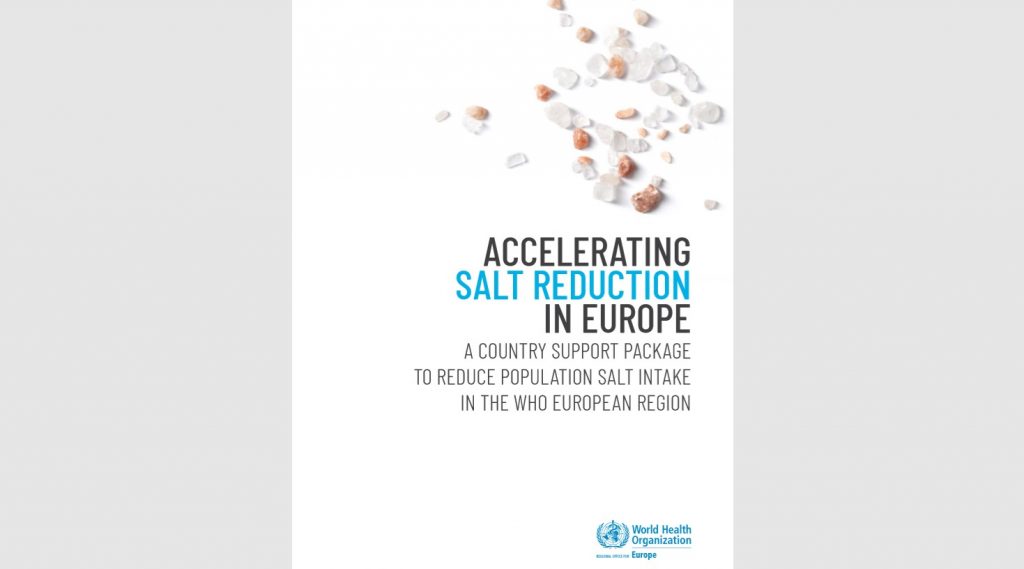Implementing Effective Salt Reduction Programs and Policies in Low- and Middle-Income Countries

In August, the Public Health Nutrition published a studied titled “Implementing effective salt reduction programs and policies in low-and-middle-income countries: learning from retrospective policy analysis in Argentina, Mongolia, South Africa and Vietnam”. This study by Webster et al, follows the Walt and Gilson’s ‘Health Policy Triangle’ to analyse the context, content, process and actors of the implementation of salt policy. The study found that each […]
Strengthening Knowledge to Practice on Effective Salt Reduction Interventions in Low- and Middle-Income Countries

Published in Current Nutrition Reports, on the 5th of July, Santos et al conducted a review on the implementation and evaluation of salt reduction interventions in Low-and middle-income countries (LMICs). The review included articles related to salt reduction interventions between 2013 and 2020. Overall, the review included 32 studies, from 137 LMICs, finding that most interventions focused on education, food reformulation and […]
Salt reduction “controversy”

There is a well-established causal relationship between salt intake and increasing blood pressure. Public health messaging is therefore focused on reducing salt intake to reduce the risk of cardiovascular disease. However, over recent years several cohort studies have claimed that both high and low salt intake are associated with cardiovascular disease risk (i.e. a “J-shaped” relationship). In two complementary editorials, prominent salt reduction researchers and epidemiologists address […]
Limited potential impact of Australia’s reformulation targets on sodium purchases

Research by Coyle et al (2020) from the George Institute for Global Health has sparked media attention as it found very limited potential impact on reducing sodium intake of the Australian population from the voluntary sodium reformulation programme, the Healthy Food Partnership, with just 50mg daily reduction per person if there was 100% compliance with […]
#GeorgeTalks on “Salt wars: using policy and the law to reduce salt intake”

The George Institute for Global Health invites you to a #GeorgeTalks on “Salt wars: using policy and the law to reduce salt intake” on Wednesday 10 March 2021 at 12pm (AEDT) to mark ‘World Salt Awareness Week’. For this #GeorgeTalks event, we will be joined by Dr. Michael F. Jacobson, Senior Scientist and former […]
Kraft Heinz on Reducing Salt in their Processed Food Products

Kraft Heinz has been incrementally reducing salt and sugar in their processed food products, to minimise the taste difference perceived by consumers in lower salt/sugar products, but the company faces pressure from nutritionists to move more quickly. In a recent report, the company promised to achieve 85% compliance with Kraft Heinz Global Nutrition Targets by […]
Health Canada Voluntary Sodium Reduction Targets for Processed Foods 2020-2025

On 18th December 2020, Health Canada published their Voluntary Sodium Reduction Targets for Processed Foods 2020-2025. These targets build on the 2012 targets, set until the end of 2016, that aimed to achieve a reduction in sodium intake to 2300 mg/day. The updated targets are based on a 15 to 20% reduction from the 2017 measured […]
The UK has new salt targets to be met by 2024

In September 2020, Public Health England published the 5th set of voluntary salt reduction targets for the UK, to be achieved by 2024. The salt targets cover 84 specific food categories, 8 more than the 2017 targets. Where there was scope for further reductions, the new targets are progressively lower than previous ones. For the […]
WHO Regional Office for Europe (WHO EURO) released new country support package to aid salt reduction

[vc_row][vc_column][vc_column_text]In late July the WHO EURO office launched a new package to support countries in the European region to reduce salt consumption. The support package provides a step-by-step guide on developing, implementing, monitoring and evaluating salt reduction programs. It is hoped that this support package will encourage countries to either reinforce of further pursue salt […]
Assessing the Healthy Food Partnership’s Nutrient Reformulation Targets in Australia

Published in Nutrients, Rosewarne et al conducted a comparison study to assess whether the Healthy Food Partnership’s (HFP) proposed reformulation targets for 36 food categories, aiming to improve the overall quality of the food supply, were feasible and appropriate or whether more stringent targets were feasible. Using FoodSwitch as the nutrient composition database, a total […]